February 17, 2025
Culture, Traditions, and Festivals in Assam
CM Content Team

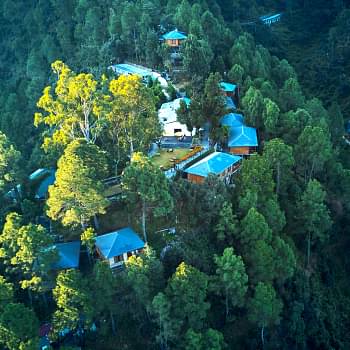
View all
140+
Resorts
February 17, 2025
CM Content Team
Assam is not only known for its stunning landscapes and wildlife but also for its rich cultural heritage. From the majestic Kaziranga National Park, home to the endangered one-horned rhinoceros, to the sprawling tea gardens, Assam is a treasure trove of natural beauty. But beyond its scenic splendour lies the culture and tradition in Assam, steeped in history, folklore, festivals, and unique culinary traditions.
Summit Green Lake Tea Resort, a Club Mahindra associate resort located near Kaziranga, offers the perfect opportunity to explore Assam’s culture and traditions. This resort in Assam provides a top-notch stay amidst the serenity of tea estates. In this blog, we’ll dive deep into Assam’s history, folklore, cuisine, customs, and festivals, highlighting the vibrant traditions in Assam that make it a cultural gem.
Assam's history, deeply shaped by various dynasties and rulers, is most significantly influenced by the Ahom dynasty, which reigned for nearly 600 years from the 13th century. Originating from present-day Myanmar, the Ahoms introduced unique administrative practices, architectural styles, and linguistic influences, leaving a profound impact on Assam's culture.
Following the Ahom dynasty's decline, British colonial rule introduced new administrative systems and ignited a robust resistance movement, highlighting figures like Gopinath Bordoloi and Kushal Konwar in the fight for India’s independence.
Today, Assam’s culture remains a vibrant fusion of ancient traditions and modernity, reflecting its rich history and diverse influences.
Assamese folklore forms an integral part of the heritage of Assam’s culture, with stories passed down through generations that still hold significance today. Each tale offers a glimpse into Assam’s belief systems, values, and connections with nature and the divine.
The customs and traditions of Assam are deeply connected to the region’s agrarian lifestyle, nature worship, and the warm hospitality of its people. Travellers visiting Assam should be mindful of the following customs to fully appreciate and respect the local culture:
Assam celebrates a multitude of festivals throughout the year, each reflecting the state’s rich cultural and religious heritage. Here are some of the most prominent festivals in Assam:
Bohag Bihu (April):
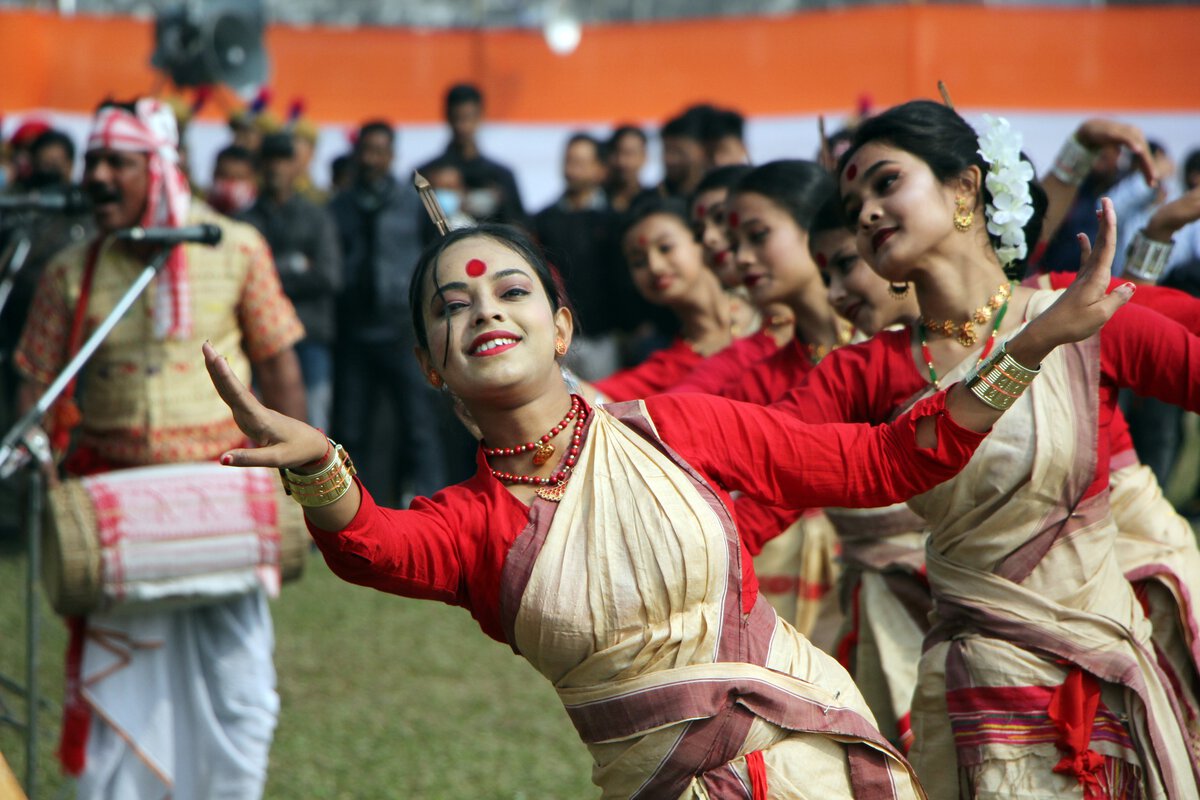
Bohag Bihu, also known as Rongali Bihu, is celebrated in mid-April to mark the Assamese New Year and the arrival of spring. The celebration of this festival showcases the culture of Assam. Bohag Bihu is a time for renewal, where homes are cleaned, new clothes are worn, and the community comes together to celebrate with feasts, traditional music, and the famous Bihu dance. According to the traditions of Assam, the festival also holds deep agricultural significance, with prayers being offered for a bountiful harvest in the upcoming year.
Magh Bihu (January):
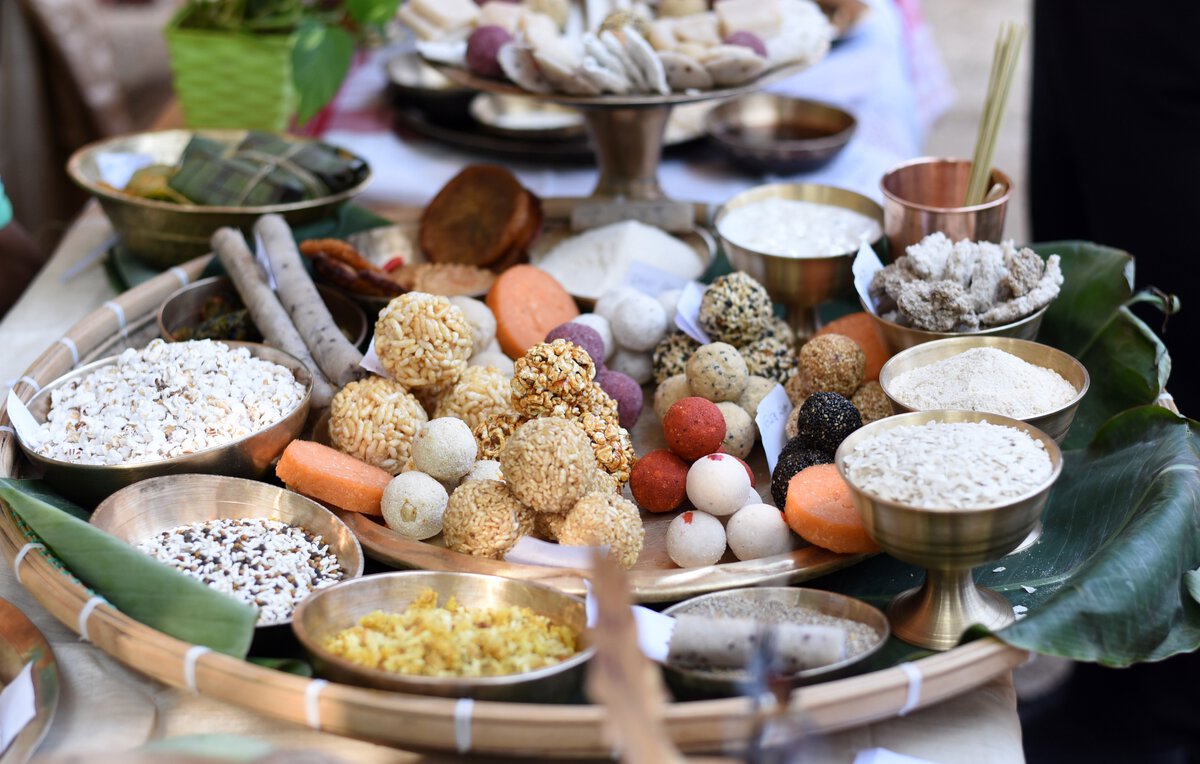
Magh Bihu, also known as Bhogali Bihu, is celebrated in January after the annual harvest. The festival is synonymous with feasting and bonfires, known as Meji. According to the traditions of Assam, on the night before Magh Bihu, families gather to build a community Meji, and traditional food items like Pitha, laru (sweet balls made of coconut or sesame), and fish dishes are prepared. The festival symbolizes the abundance brought by the harvest and is a time for community bonding.
Ambubachi Mela (June):
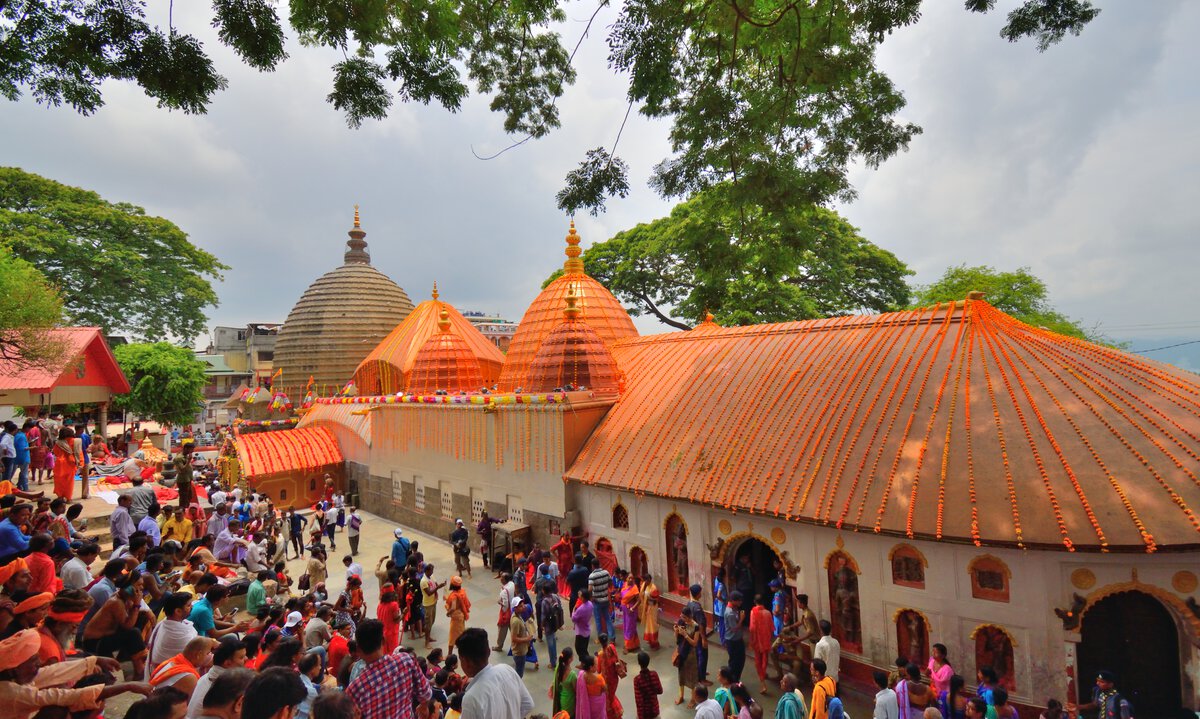
Ambubachi Mela is a significant religious festival held annually at the Kamakhya Temple in Guwahati. Celebrated in June, this festival marks the annual menstruation of the goddess Kamakhya, who is worshipped as the goddess of fertility. Thousands of devotees and sadhus from across the country gather at the temple for prayers and rituals. According to the traditions of Assam, the temple remains closed for three days, during which it is believed that the goddess undergoes her natural cycle. The reopening of the temple is a grand event marked by rituals and celebrations.
Jonbeel Mela (January):
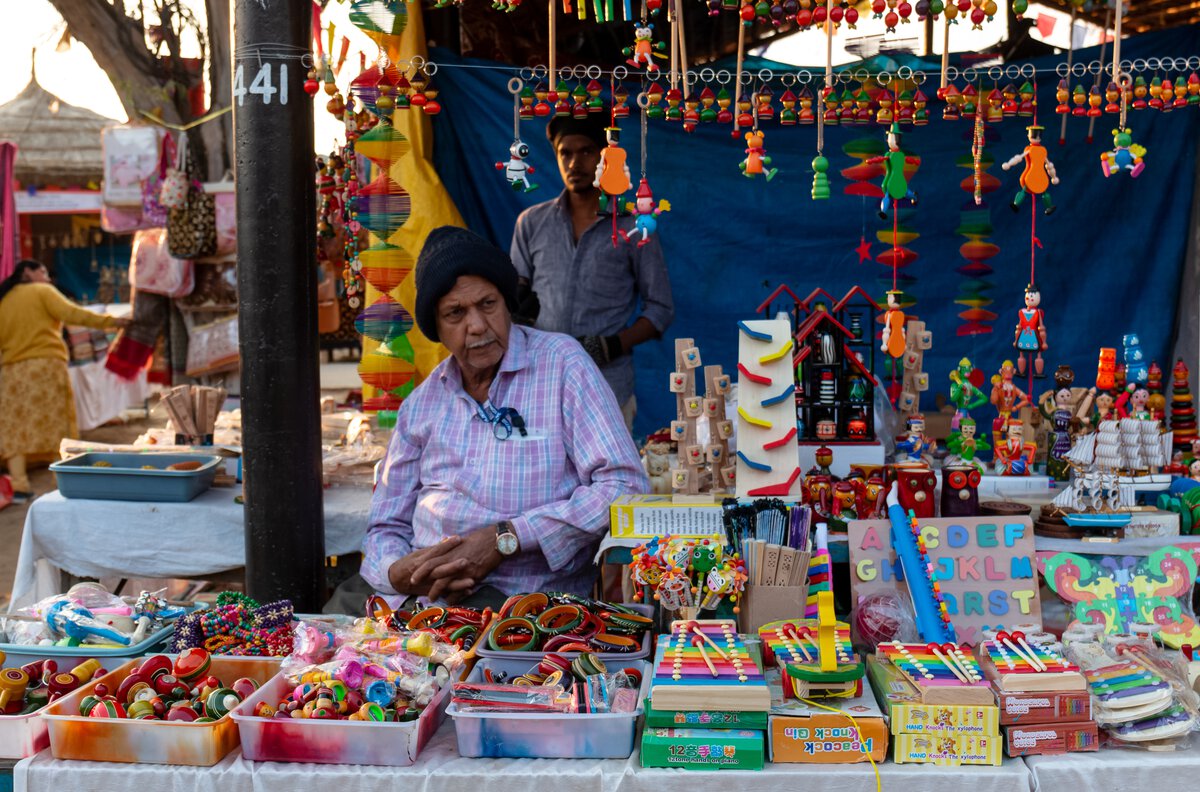
Jonbeel Mela is a unique fair held in January, where the age-old practice of barter trade takes centre stage. The fair is organized near Jagiroad, and communities from the hills and plains come together to exchange goods without the use of money. This festival reflects Assam’s ancient economic customs and is a fascinating event for travellers interested in experiencing Assam’s traditional trading practices.
Durga Puja (September-October):
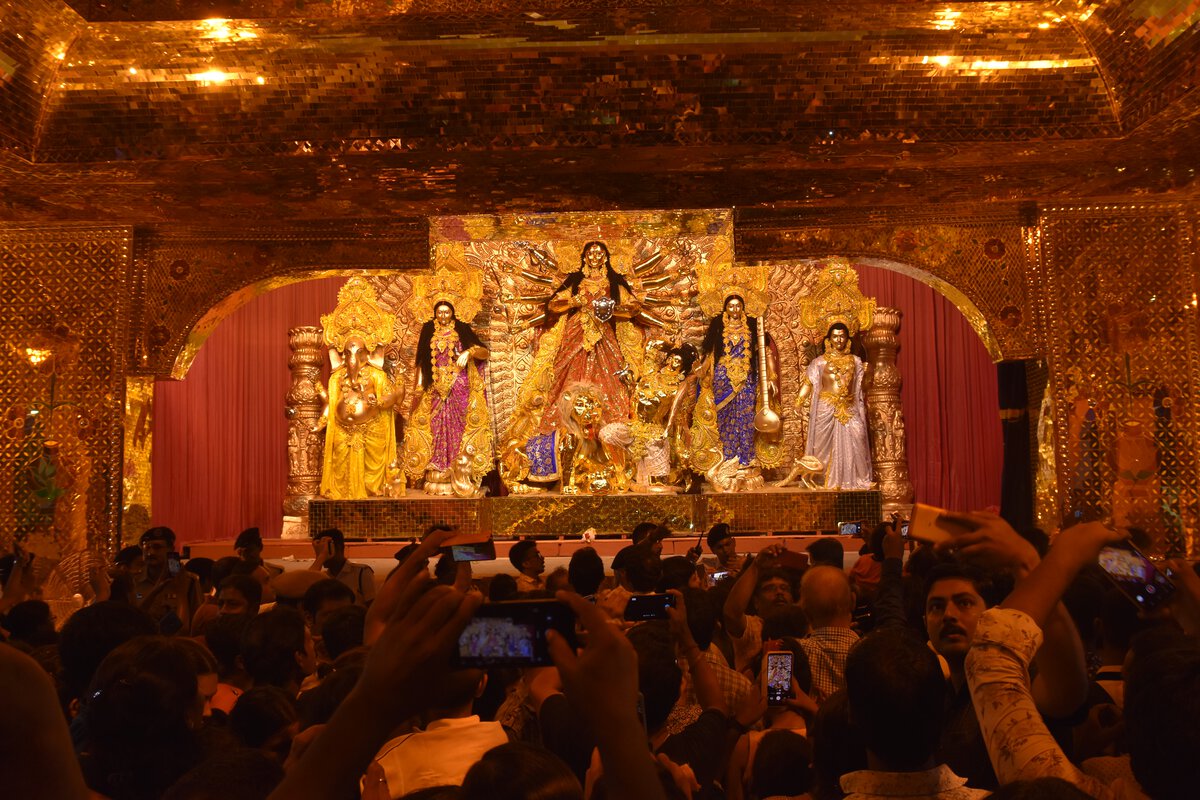
Although Durga Puja is primarily associated with Bengal, it is celebrated with equal fervour in Assam, especially in cities like Guwahati. The festival honours the goddess Durga and includes elaborate rituals unique to the culture and traditions of Assam as well as community feasts. Idols of Durga are beautifully crafted and displayed at pandals (temporary stages), and the festival culminates with the immersion of these idols in rivers or lakes.
Assamese cuisine is simple yet packed with unique flavours that reflect the state’s geographical diversity, with its fertile river valleys, hills, and proximity to neighbouring cultures like Bengal and the rest of Northeast India. Assamese food heavily relies on fresh, locally sourced ingredients, including fish, rice, and vegetables, along with a distinct use of fermentation and alkaline cooking methods.
Here are some must-try Assamese dishes:
Khar:
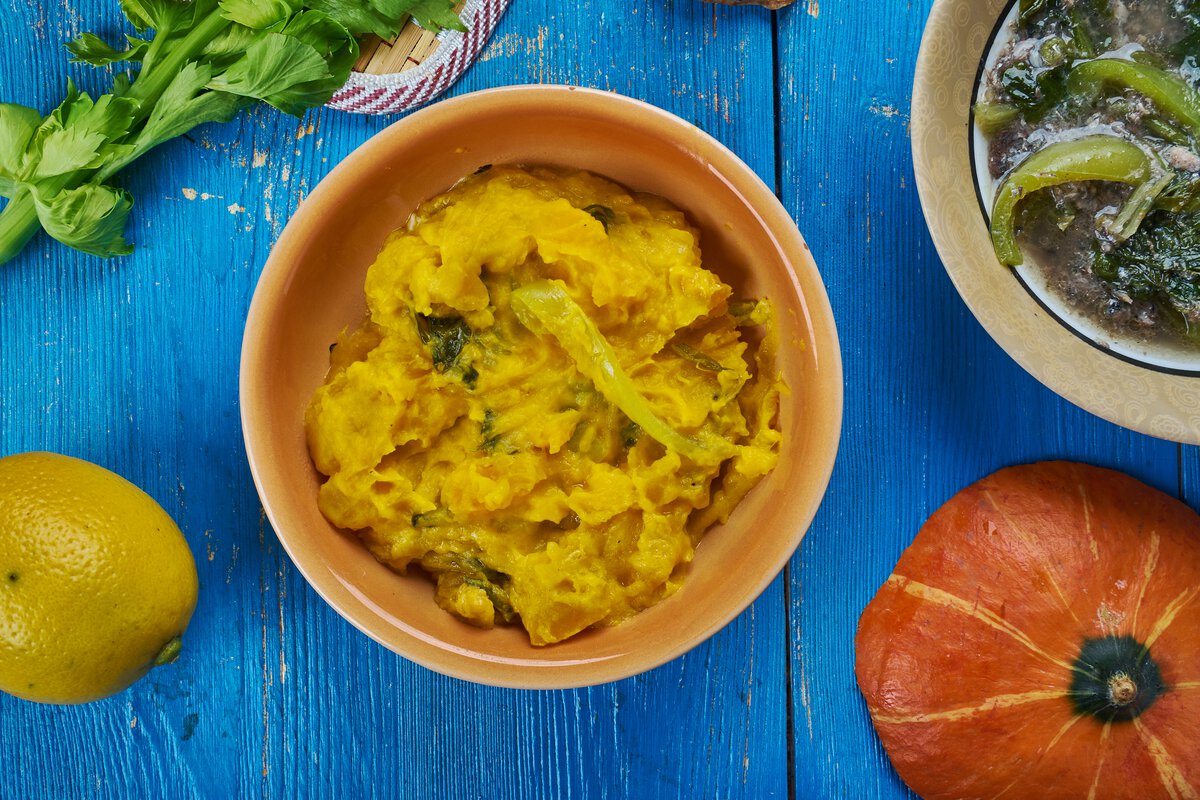
Khar is Assam’s traditional dish that represents the soul of Assamese cuisine. It is prepared using raw papaya, pulses, and filtered alkaline water, usually derived from dried banana peel. The dish is Savory and light, often served as a starter in traditional Assamese meals. Khar stands out because of its unique preparation method and its balance of flavours.
Duck Meat Curry:
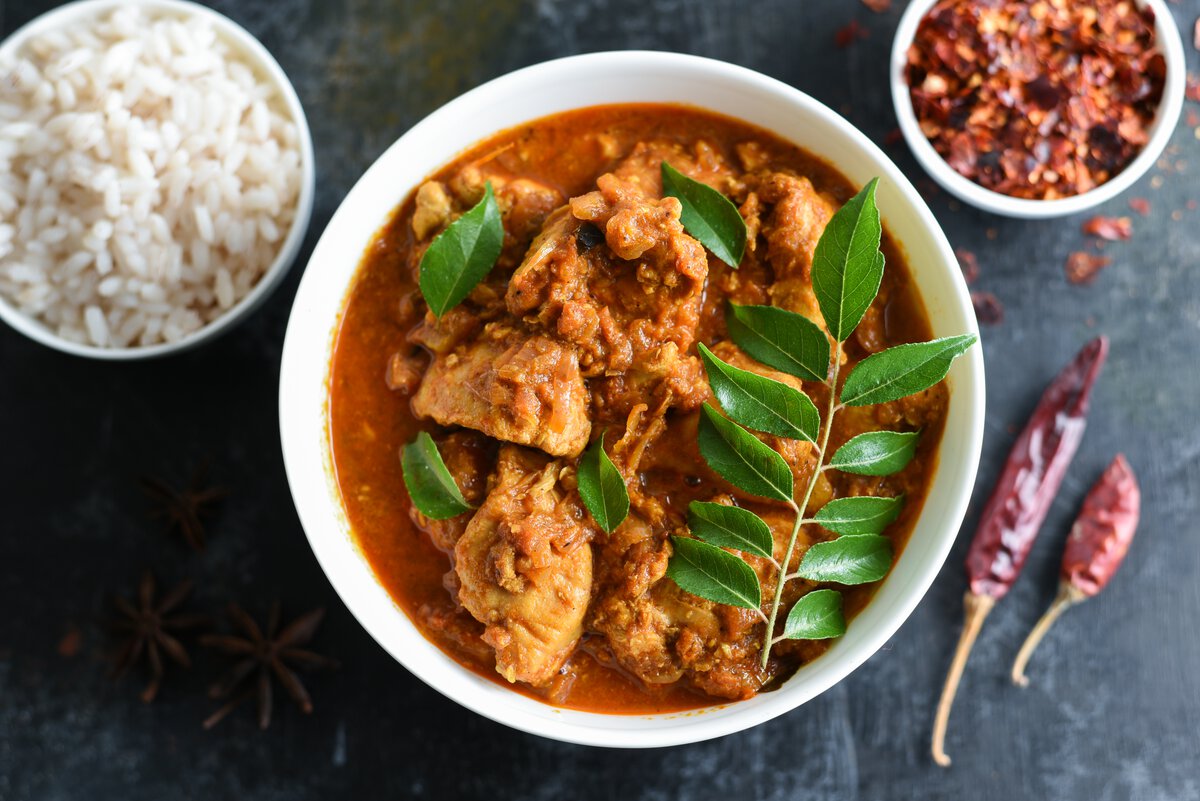
Duck meat is a delicacy in Assam, especially cooked with ash gourd or sesame seeds. This rich and flavourful curry is usually reserved for special occasions and family gatherings. The blend of spices and slow-cooking technique creates a deep, hearty flavour, making it a must-try for non-vegetarian food lovers.
Pitha:
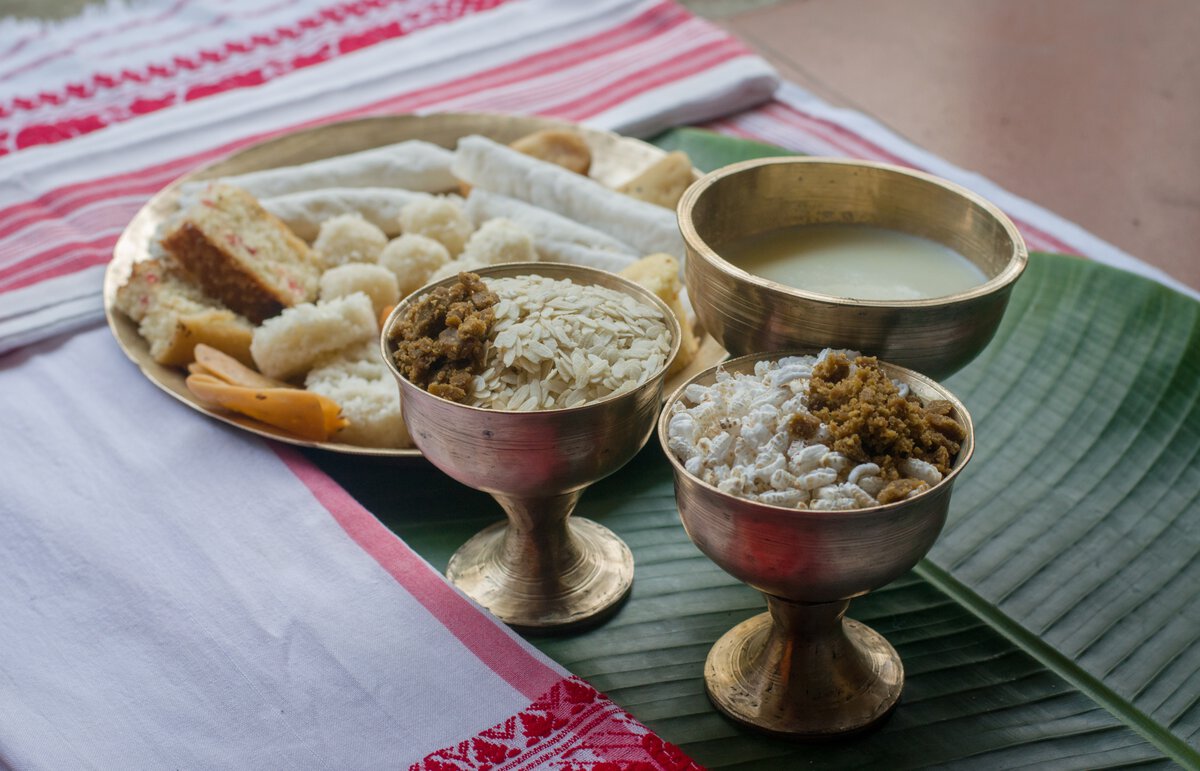
Pitha is a rice-based snack or dessert, depending on the filling. It’s usually made during festive occasions, especially during Bihu. The most popular types are Til Pitha (stuffed with sesame seeds and jaggery) and Narikol Pitha (stuffed with coconut). Pithas symbolize Assamese hospitality and are made with love and care, often served to guests during festivals.
Masor Tenga:
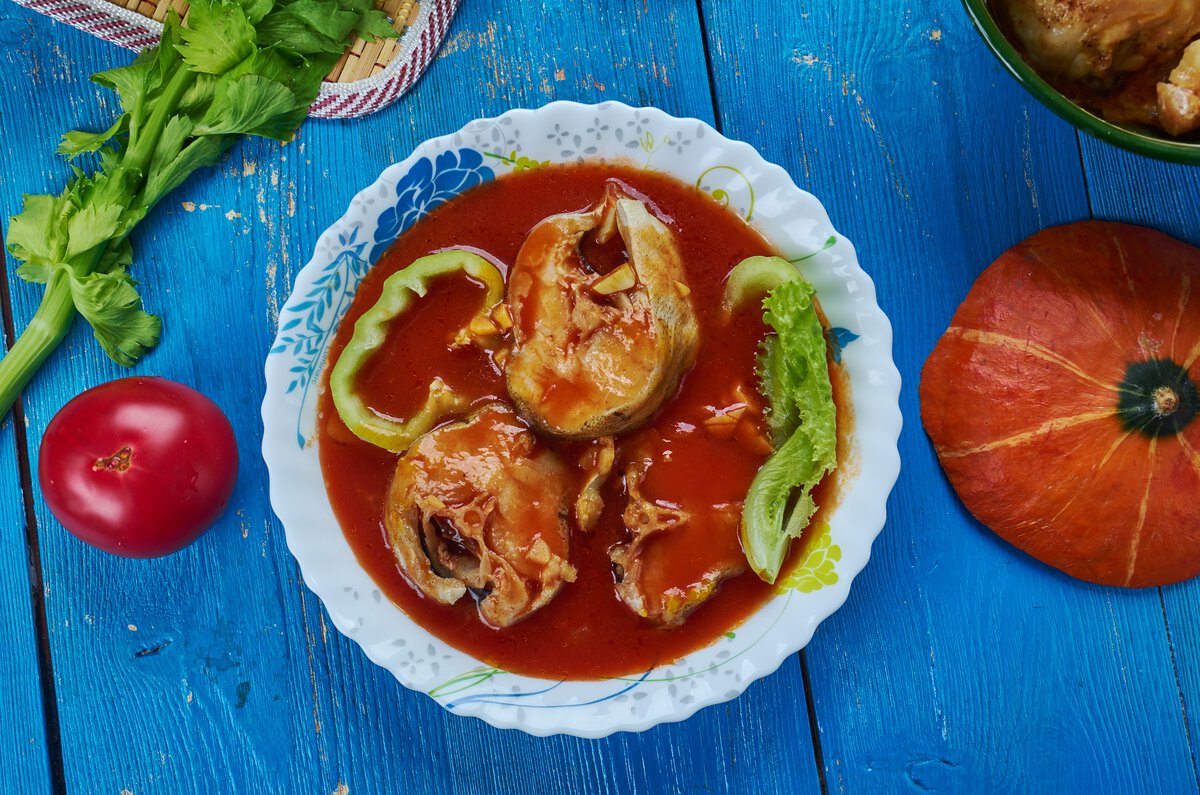
Assam’s traditional fish curry is light and sour. Masor Tenga is a staple in Assamese households, especially during the hot and humid seasons. The sourness comes from the use of tomatoes, lemon, or even fermented bamboo shoots. It’s a simple yet refreshing dish that pairs perfectly with steamed rice.
Fish Tenka: This is a fermented fish curry popular in certain parts of Assam. Fermentation is a key culinary practice in Assamese cuisine, and Fish Tenka uses fermented fish to create a tangy, pungent dish. This curry is often enjoyed with leafy greens and spices, offering a bold and unique flavour profile.
Bora Saul: A type of sticky rice that is grown in Assam, Bora Saul is often eaten with jaggery or milk. It is a comforting dish commonly enjoyed during breakfast or festive occasions. The sticky texture and mild flavour make it a versatile food that pairs well with both sweet and savoury accompaniments.
You can dive into the traditional Assamese culinary delights at Summit Green Lake Tea Resort, a Club Mahindra associate resort located near Kaziranga.
The identity of the culture and traditions of Assam is deeply rooted in its traditional dance forms and music. These art forms reflect the region’s history, mythology, and connection to nature.
Traditional Dance Forms of Assam
Assam is a treasure trove of artistic traditions that reflect its deep-rooted culture, spiritual heritage, and connection to nature. Assam’s art forms include everything from intricate textiles to masterful pottery, each representing the rich history and craftsmanship passed down through generations. Below are some of the most significant art forms that define the legacy of Art in Assam:
Muga Silk: Assam is famous for its muga silk. It is a rare and luxurious fabric known for its natural golden sheen. This silk is exclusive to Assam and is used to make traditional garments like the Mekhela Chador.
Eri Silk (Ahimsa Silk): Eri silk is softer and warmer than Muga and is produced through a non-violent process, making it eco-friendly. It’s primarily used for making shawls and blankets.
Mekhela Chador: This traditional Assamese garment women wear is handwoven with intricate motifs. It’s a symbol of Assamese identity, showcasing the artistic skill of local weavers.
Terracotta: Assam’s terracotta art is renowned, particularly the Asharikandi Terracotta from Dhubri district, which features unique mother-and-child figurines. These are used in religious ceremonies and home décor.
Pottery: Assam’s pottery is often hand-moulded without the use of a wheel, especially in rural areas. It’s used for making earthenware items like cooking pots and storage containers, reflecting the state's close ties to nature and the land.
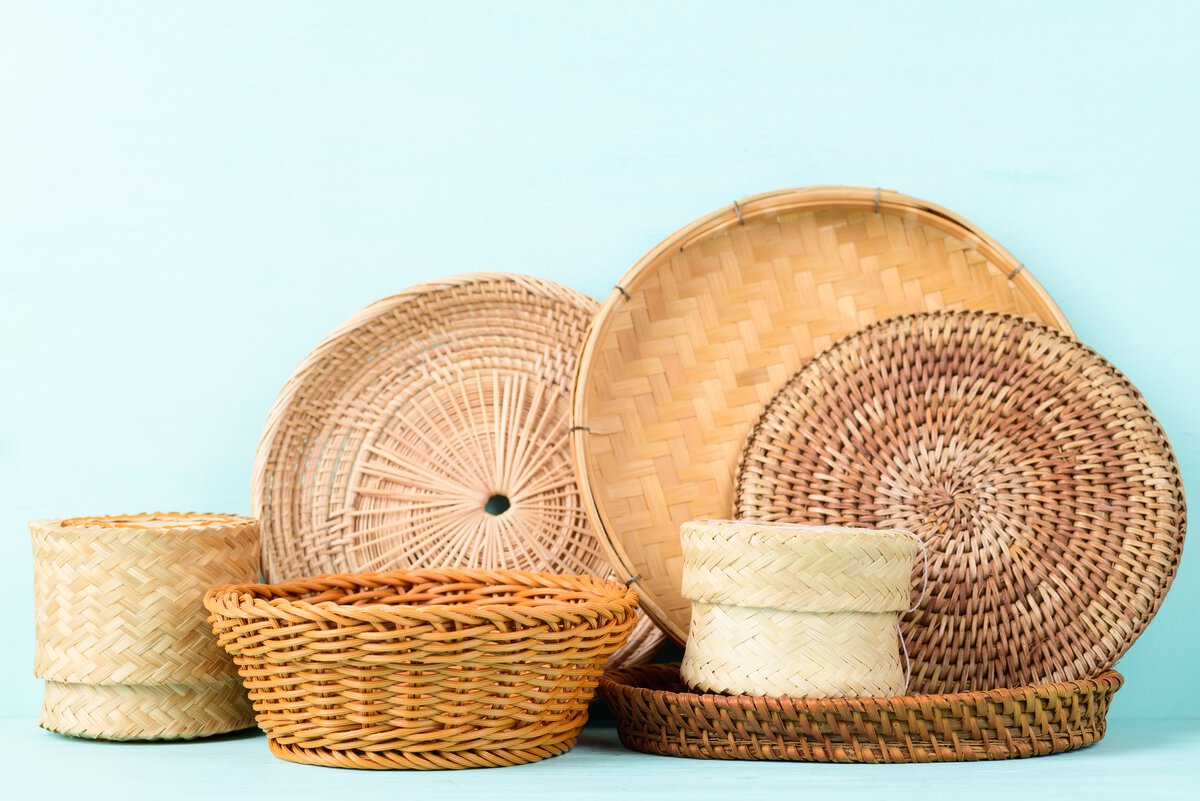
Bamboo Furniture: beautiful and sustainable bamboo furniture, such as chairs, tables, and baskets, is the true testimony to the art of Assam. These items are known for their durability and lightness.
Jaapi: The Jaapi, a traditional sunshade hat made from bamboo and palm leaves, is an iconic symbol of Assamese culture. Initially used by farmers, it is now also seen in Assam’s cultural ceremonies and as a decorative item.
Sattriya Masks: In Majuli, Assam's river island, masks are created for use in Bhaona, a religious dance-drama. These masks depict mythological characters and are made from bamboo, cloth, and natural dyes.
Cultural Importance: These masks are integral to the Sattriya culture, representing Assam’s connection to its spiritual and religious heritage.
Sanchi Manuscripts: Illuminated manuscripts created during the Ahom period contain religious texts and were beautifully illustrated with natural pigments derived from plants and minerals, which are an important part of the culture and traditions of Assam.
Bark Paintings: Monks from the Vaishnavite Sattras produce xasi pat paintings depicting religious and mythological stories on tree bark.
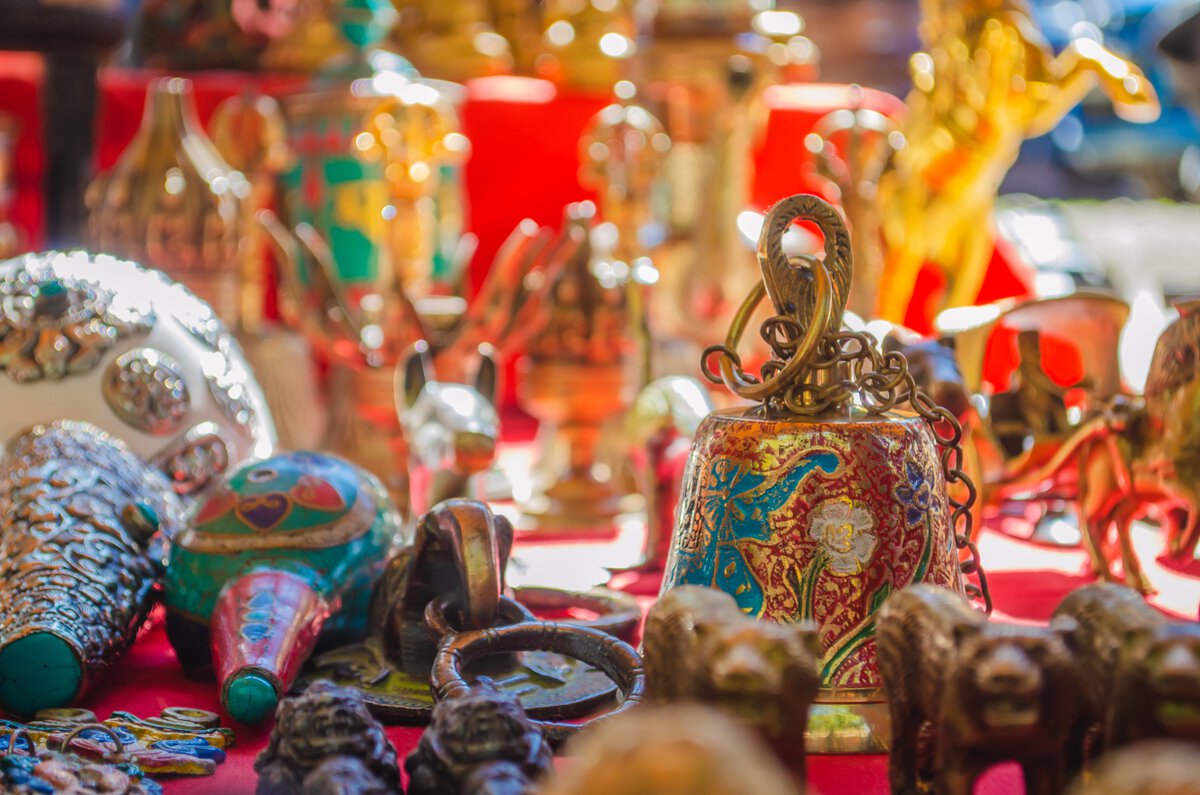
Xorai and Bota: Assam’s bell metal craft is most famous for producing the Xorai (an offering tray) and Bota (a ceremonial bowl), which are used in religious ceremonies and as decorative items.
Religious Artifacts: Assamese artists create temple bells, ritual lamps, and religious statues from bell metal, which are essential to Assam’s spiritual practices.
Staying at Summit Green Lake Tea Resort allows travellers to Experience Assam’s Rich Culture, Festivals, and Traditions. This resort in Assam, located near Kaziranga National Park, is more than just a place to relax; it’s a gateway to experiencing the cultural soul of Assam. Surrounded by lush tea gardens, the resort offers guests a blend of luxury and cultural immersion. From guided tours of the local tea estates to cultural evenings showcasing Assamese dance and music, the resort provides a comprehensive cultural experience.
Guests can also participate in traditional activities like tea tasting, village tours, and agricultural festivals. The resort works closely with local artisans and performers to ensure visitors get an authentic glimpse into Assamese life. Whether it’s during the vibrant Bihu festival or through intimate cultural evenings, Summit Green Lake Tea Resort ensures that your stay is rich with experiences that reflect Assam’s traditions.
Club Mahindra membership offers more than just wonderful stays—it’s a gateway to cultural discovery across India. In Assam, Club Mahindra members can enjoy exclusive access to cultural events at Summit Green Lake Tea Resort, along with personalized itineraries that highlight the best of the region’s festivals, cuisine, and traditions.
The Club Mahindra membership provides flexibility to explore different cultural hubs across India, from Rajasthan to Kerala, ensuring that you experience India’s diversity in all its forms. With Club Mahindra, your vacations are not just about relaxation but about immersing yourself in local traditions, food, and art forms.
Assam’s rich culture, traditions, and festivals offer an unforgettable travel experience. Whether you’re exploring the region’s folklore, tasting its unique cuisine, or dancing to the beats of the Bihu, Assam’s cultural heritage is sure to captivate you. The Summit Green Lake Tea Resort in Kaziranga offers the perfect base to explore this vibrant state, ensuring an immersive journey into Assam’s soul. So pack your bags and get ready to embark on a cultural adventure that you’ll cherish forever.
Mahindra Holidays & Resorts India Ltd. (MHRIL), a part of Leisure and Hospitality sector of the Mahindra Group, offers quality family holidays primarily through vacation ownership memberships and brings to the industry values such as reliability, trust and customer satisfaction. Started in 1996, the company's flagship brand ‘Club Mahindra’, today has over 300,000 members , who can holiday at 140+ resorts in India and abroad.
We use cookies to personalise content and to provide you with an improved user experience.By Continuing to browse this site you consent to the use of cookies.Please visit our cookie policy for further details.

Welcome to ClubMahindra.com In order to provide a personalised experience for you, we use cookies to enable some website functionality. Cookies help us see which articles most interest you; allow you to easily share articles on social media channels; permit us to deliver content personalised to your interests and locations; along with many other site benefits. For more information, please review our Cookie Policy
When you visit any website, it may store or retrieve information on your browser, mostly in the form of cookies. This information might be about you, your preferences or your device and is mostly used to make the site work as you expect it to. The information does not usually directly identify you, but it can give you a more personalized web experience. Because we respect your right to privacy, you can choose not to allow some types of cookies. Click on the different category headings to find out more and change our default settings. However, blocking some types of cookies may impact your experience of the site and the services we are able to offer.
Because we respect your right to privacy, you can choose not to allow some types of cookies and you have the right to withdraw your consent by send a mail to email id [email protected]
These cookies are essential in order to enable you to move around the site and use its features, such as accessing secure areas of the site. Without these cookies, services you have asked for cannot be provided.
These cookies allow us to employ data analytics so we can measure and improve the performance of our site and provide more relevant content to you. These cookies don't collect information that identifies a visitor down to an individual level that is available to us. These cookies are not passing personally identifiable information to any external third party other than in limited cases when we engage a service provider to act on our behalf but who is then unable to use the data for their own purposes.
Performance cookies are generally third-party cookies from vendors we work with or who work on our behalf that collect information about your visit and use of the Club Mahindra website, for instance which pages you visit the most often, and if you get error messages from web pages. These cookies don't collect information that identifies a visitor. All information these cookies collect is anonymous and is only used to improve your overall experience on how the website works. Third party vendors may have access to this data and may use it to improve their overall services and offerings.
Functionality cookies allow a site to remember choices you make (such as your user name, language or the region you are in) and provide more enhanced, personal features. These cookies cannot track your browsing activity on other websites. They don't gather any information about you that could be used for advertising or remembering where you've been on the Internet outside our site.
Third-party advertising and social media cookies are used to (1) deliver advertisements more relevant to you and your interests; (2) limit the number of times you see an advertisement; (3) help measure the effectiveness of the advertising campaign; and (4) understand people's behaviour after they view an advertisement. They are usually placed on behalf of advertising networks with the site operator's permission. They remember that you have visited a site and quite often they will be linked to site functionality provided by the other organization. This may impact the content and messages you see on other websites you visit. If you do not allow these cookies you may not be able to use or see certain these sharing tools content on our website.